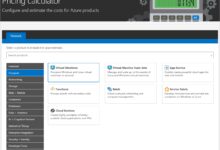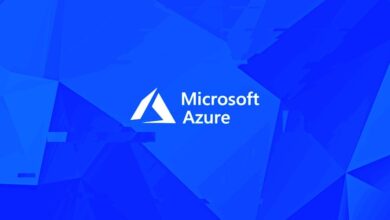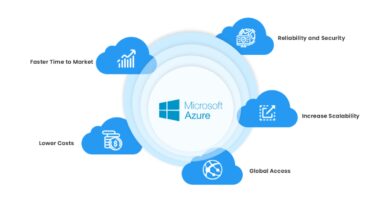MS Azure: 7 Powerful Reasons to Choose Microsoft’s Cloud
MS Azure is transforming how businesses operate in the digital era. With unmatched scalability, security, and integration, it’s no wonder top enterprises are making the switch. Let’s dive into what makes MS Azure a game-changer.
What Is MS Azure and Why It Matters

Microsoft Azure, commonly referred to as MS Azure, is a comprehensive cloud computing platform developed by Microsoft. It enables organizations to build, deploy, and manage applications across a global network of data centers. Unlike traditional on-premise infrastructure, MS Azure offers a flexible, scalable, and cost-effective alternative that supports modern digital transformation.
Origins and Evolution of MS Azure
MS Azure was first launched in 2010 as Windows Azure, primarily focused on application hosting. Over the years, it has evolved into a full-fledged cloud ecosystem offering over 200 services, including computing, storage, networking, machine learning, and Internet of Things (IoT). This evolution reflects Microsoft’s strategic shift toward cloud-first solutions.
By 2014, the platform was rebranded to Microsoft Azure, signaling its expansion beyond Windows-centric services to support Linux, open-source frameworks, and multi-platform development. Today, MS Azure stands as the second-largest cloud provider globally, trailing only behind Amazon Web Services (AWS), according to Gartner’s 2023 Magic Quadrant for Cloud Infrastructure.
Core Components of MS Azure
MS Azure is built around three primary service models: Infrastructure as a Service (IaaS), Platform as a Service (PaaS), and Software as a Service (SaaS). These models allow businesses to choose the level of control and management they need.
- IaaS: Provides virtualized computing resources over the internet (e.g., Azure Virtual Machines).
- PaaS: Offers a platform allowing customers to develop, run, and manage applications without dealing with infrastructure (e.g., Azure App Services).
- SaaS: Delivers software applications over the internet on a subscription basis (e.g., Microsoft 365).
Each model serves different business needs, from startups needing rapid deployment to enterprises requiring full infrastructure control.
“Azure is not just a cloud platform; it’s a bridge between legacy systems and future innovation.” – Satya Nadella, CEO of Microsoft
Key Benefits of Using MS Azure
Organizations adopt MS Azure for a variety of strategic advantages. From cost savings to enhanced security, the platform delivers tangible business value across industries.
Scalability and Flexibility
One of the most compelling features of MS Azure is its ability to scale resources on demand. Whether you’re handling seasonal traffic spikes or launching a new product, Azure automatically adjusts compute, storage, and networking resources.
This elasticity means businesses pay only for what they use, avoiding the capital expenditure associated with physical servers. For example, an e-commerce site can scale up during Black Friday and scale down afterward, optimizing costs without performance loss.
Azure’s global footprint—spanning over 60 regions—ensures low-latency access and high availability. This is crucial for multinational companies aiming to deliver consistent user experiences worldwide.
Cost Efficiency and Pay-as-You-Go Model
MS Azure operates on a pay-as-you-go pricing model, which eliminates upfront hardware costs and reduces operational expenses. This model is particularly beneficial for startups and small businesses with limited IT budgets.
Additionally, Azure offers reserved instances and hybrid benefits. For instance, organizations using Windows Server with Software Assurance can leverage Azure Hybrid Benefit to save up to 40% on virtual machine costs.
Tools like the Azure Pricing Calculator help estimate costs before deployment, enabling better financial planning and transparency.
MS Azure vs. Competitors: How It Stands Out
While AWS and Google Cloud Platform (GCP) are strong contenders, MS Azure differentiates itself through integration, hybrid capabilities, and enterprise support.
Integration with Microsoft Ecosystem
MS Azure seamlessly integrates with other Microsoft products such as Active Directory, Office 365, Dynamics 365, and Visual Studio. This tight integration reduces complexity for organizations already invested in Microsoft technologies.
For example, Azure Active Directory (Azure AD) enables single sign-on (SSO) across cloud and on-premise applications, simplifying identity management and enhancing security.
This synergy is a major advantage for enterprises using Microsoft tools daily, reducing training time and increasing productivity.
Hybrid Cloud Leadership
Unlike pure-play cloud providers, MS Azure excels in hybrid cloud scenarios. Azure Stack allows businesses to run Azure services on-premises, enabling consistent management across environments.
This is critical for industries like finance and healthcare, where data sovereignty and compliance require certain workloads to remain on-site. Azure Arc extends this capability by enabling governance of servers across on-premises, multi-cloud, and edge environments from a single control plane.
According to a 2022 IDC study, organizations using Azure’s hybrid solutions reported a 47% reduction in downtime and 38% lower IT operational costs.
Core Services Offered by MS Azure
MS Azure provides a vast array of services across computing, storage, networking, AI, and security. Understanding these services helps organizations choose the right tools for their needs.
Compute Services: Virtual Machines and Containers
Azure Virtual Machines (VMs) allow users to deploy Windows or Linux-based servers in the cloud. These VMs support a wide range of workloads, from legacy applications to high-performance computing.
For modern application development, Azure Kubernetes Service (AKS) offers managed container orchestration. AKS simplifies the deployment, scaling, and management of containerized applications using Kubernetes.
Developers can also use Azure Functions for serverless computing, where code runs in response to events without managing infrastructure. This is ideal for microservices and event-driven architectures.
Storage and Database Solutions
MS Azure offers multiple storage options tailored to different use cases:
- Azure Blob Storage: For unstructured data like images, videos, and backups.
- Azure Files: Cloud file shares accessible via SMB or NFS protocols.
- Azure Disk Storage: High-performance block storage for VMs.
For databases, Azure provides both relational and non-relational options. Azure SQL Database is a fully managed PaaS offering with built-in high availability and automatic tuning. Meanwhile, Azure Cosmos DB is a globally distributed, multi-model database service ideal for low-latency, scalable applications.
These services support hybrid scenarios through Azure Database Migration Service, which helps move on-premise databases to the cloud with minimal downtime.
Security and Compliance in MS Azure
Security is a top priority for any cloud platform, and MS Azure leads with robust tools and compliance certifications.
Built-in Security Features
MS Azure includes a suite of security services under Azure Security Center (now part of Microsoft Defender for Cloud). This unified platform provides threat protection, vulnerability assessment, and security posture management.
Features like Just-in-Time VM access, network security groups, and adaptive application controls help prevent unauthorized access. Additionally, Azure Sentinel offers cloud-native Security Information and Event Management (SIEM), enabling real-time threat detection and response.
Encryption is enabled by default for data at rest and in transit. Azure Key Vault allows secure storage and management of cryptographic keys and secrets, ensuring sensitive data remains protected.
Global Compliance and Certifications
MS Azure complies with over 100 international and industry-specific standards, including GDPR, HIPAA, ISO 27001, SOC 1/2/3, and FedRAMP. This makes it suitable for regulated industries such as government, healthcare, and finance.
Microsoft’s Trust Center provides transparency into compliance status, audit reports, and data handling practices. Organizations can use the Microsoft Compliance Manager to assess and improve their regulatory posture.
“Azure’s compliance framework gives us confidence to operate globally while meeting local data laws.” – CISO, Financial Services Firm
AI and Machine Learning Capabilities in MS Azure
MS Azure is at the forefront of democratizing artificial intelligence (AI) and machine learning (ML) for businesses of all sizes.
Pre-Built AI Services
Azure Cognitive Services offer pre-trained APIs for vision, speech, language, and decision-making. For example:
- Computer Vision API: Analyzes images for objects, faces, and text.
- Text Analytics: Extracts sentiment, key phrases, and entities from text.
- Speech to Text and Text to Speech: Enables voice-enabled applications.
These services require no ML expertise, allowing developers to integrate AI into applications quickly. A retail company, for instance, can use the Face API to personalize customer experiences in physical stores.
Custom Machine Learning with Azure ML
For advanced use cases, Azure Machine Learning provides a comprehensive environment to build, train, and deploy custom ML models. It supports popular frameworks like TensorFlow, PyTorch, and scikit-learn.
Data scientists can use automated ML (AutoML) to accelerate model development by automatically selecting algorithms and hyperparameters. The service also integrates with MLOps practices for model versioning, monitoring, and continuous deployment.
Industries like manufacturing use Azure ML for predictive maintenance, reducing equipment downtime by forecasting failures before they occur.
How to Get Started with MS Azure
Starting with MS Azure is straightforward, even for those new to cloud computing.
Creating an Azure Account
Visit azure.microsoft.com/free to sign up for a free account. The free tier includes $200 in credits for 30 days and access to over 25 always-free services, such as Azure Functions and Blob Storage.
After registration, users gain access to the Azure portal—a web-based interface for managing resources. The portal features a dashboard, resource explorer, and integrated command-line tools (Azure CLI and PowerShell).
Learning Resources and Certification Paths
Microsoft Learn offers free, interactive modules to help users master Azure fundamentals, administration, development, and architecture. Popular learning paths include:
- Azure Fundamentals (AZ-900)
- Azure Administrator (AZ-104)
- Azure Developer (AZ-204)
- Azure Solutions Architect (AZ-305)
Earning certifications validates skills and enhances career prospects. According to Microsoft, certified professionals report a 20% increase in job performance and higher earning potential.
What is MS Azure?
MS Azure is Microsoft’s cloud computing platform that provides over 200 services for building, deploying, and managing applications across a global network of data centers. It supports IaaS, PaaS, and SaaS models and integrates seamlessly with Microsoft products.
How does MS Azure compare to AWS?
While AWS has a larger market share, MS Azure excels in hybrid cloud integration, enterprise support, and compatibility with Microsoft environments. Azure is often preferred by organizations already using Microsoft tools like Active Directory and Office 365.
Is MS Azure secure?
Yes, MS Azure is highly secure, offering built-in encryption, threat detection, identity management, and compliance with over 100 global standards. Microsoft invests over $1 billion annually in cybersecurity research and development.
Can I use MS Azure for AI and machine learning?
Absolutely. MS Azure provides both pre-built AI services (Cognitive Services) and tools for custom machine learning (Azure Machine Learning), making AI accessible to developers and data scientists alike.
How much does MS Azure cost?
MS Azure uses a pay-as-you-go model with no upfront costs. Pricing varies by service, but the free tier offers $200 in credits and access to free services for 12 months. Use the Azure Pricing Calculator to estimate costs.
MS Azure has firmly established itself as a leading cloud platform, combining innovation, security, and enterprise-grade reliability. Whether you’re migrating legacy systems, building modern applications, or leveraging AI, MS Azure provides the tools and infrastructure to succeed. Its seamless integration with Microsoft ecosystems, hybrid cloud leadership, and global compliance make it a top choice for businesses worldwide. As digital transformation accelerates, MS Azure continues to empower organizations to innovate faster, operate more efficiently, and stay ahead of the competition.
Further Reading:









